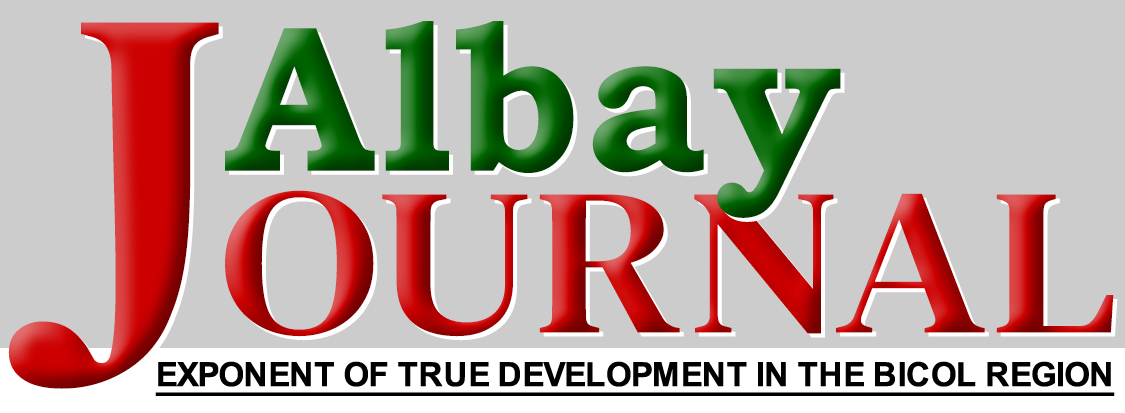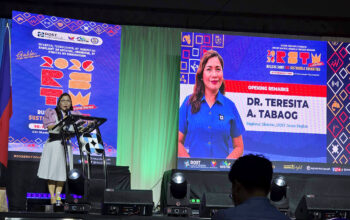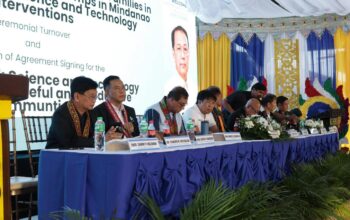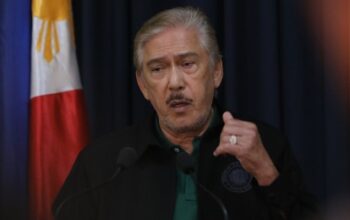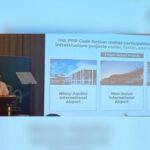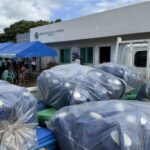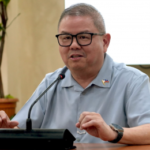
The National Academy of Science and Technology of The Philippines (NAST-PHL)-Agricultural Sciences Division facilitated a policy talk on the issuance of scientific permits in the Philippines on 26 September 2023, at the Acacia Hotel Alabang, Muntinlupa City and via FB and Zoom meeting livestreams.
With the theme “Kailangan ba ng Scientific Permit? Kailan? Paano? At Bakit?”, the forum made way to break and clarify the process of obtaining permits and to raise concerns coupled with advances to be made in regulatory implementation for the benefit of the Filipino scientific community.
“I hope to solicit ideas and recommendations on harmonizing permitting system to make it easier for scientists to publish their work and introduce their discoveries,” said NAST Secretary Academician Dr. Jaime C. Montoya, in his welcome message.
Scientific permits are prescribed by law and employed to protect and conserve natural resources especially endangered species including their habitat. Reputed local and international journals require researchers to acquire scientific permits to promote ethical practice, sustainable conduct of studies, and to avoid legal disputes that may occur.
In the Philippines, processing scientific permits is guided by regulations in charge: Department of Environment and Natural Resources- Biodiversity Management Bureau (DENR-BMB), Palawan Council for Sustainable Development (PCSD), Department of Agriculture-Bureau of Fisheries and Aquatic Resources (DA-BFAR), and the National Museum of the Philippines.

As the first presenter, Katherine E. Soriano of DENR-BMB encouraged scientists and researchers to be familiar with the jurisdictions of involved agencies in implementing the Wildlife Resources Conservation Act or R.A. 9147. This law emphasizes the requirement of a Gratuitous Permit (GP) for research involving the collection of wild forms of flora and fauna specimens including their byproducts and derivatives.
According to the law, permit for all terrestrial species, freshwater and marine turtles, dugong and crocodiles are concerns of DENR while BFAR is authorized to issue a permit for studies on all aquatic species (excluding those aquatic species mentioned under DENR). On the other hand, permits for all wildlife species discovered or studied in the province of Palawan will be issued by the PCSD.
Soriano highlighted that process flow, requirements, and signatories of permits are varied based on several conditions such as type of applicant (foreign and local), collection sites, and multiple sites. An example is the Wildlife Act. Sec. 14 that requires a Gratuitous Permit (GP) and a Memorandum of Understanding (MOU) for bioprospecting undertakings (BU) which pertains to research that require the collection of biological and genetic resources for commercial purposes.
The struggle that has been observed among clients include failure on the submission of requirements to the right office and slow process of acquiring permits that hampers research activities.
“Getting a permit is not a right but a privilege. It is not given naturally but rather an obligation that we need to comply with before we acquire it,” uttered Atty. Michael S. Andayog of DA-BFAR who discussed the scientific permits for aquatic resources.
Atty. Andayog discussed the legal framework and requirements under FAO No. 233 (R.A. 9147). He also highlighted that the protection, definition, and updating of the list of endangered and threatened rare aquatic species is under the implementing rules of the Fisheries Administrative Order (FAO) No. 208 (R.A. 8550). Illegal fishing is also punishable by this law.
The counterpart of the National Museum of the Philippines was covered by discussant Jhaydee Ann Pascual. As stipulated in R.A. 11333, the Philippine National Museum shall conduct basic and applied research programs in biodiversity. They are also mandated by the National Heritage Act (R.A. 100661) to collect, maintain, and develop the national reference collection of Philippine flora and fauna.
Mismatched dates of collection and issuance of permit are some of the issues singled out by Pascual in the acquisition of collections. In such cases, they’re collaborating with concerned agencies to gather basis in making decision.
Moreover, the process flow of submitting holotypes and the zoological collection was shared by Marivene Santos, head of the zoology division of the National Museum of the Philippines. Appropriate treatment to the submission of species collected by hobbyists without a permit is a concern.
Open forum session
The end part of the forum was dedicated to the rundown of takeaways and the way forward led by Acd. Arvin C. Diesmos, of NAST Biological Sciences Division. The fundamental inputs cover the following: (1) strict compliance of local and foreign researchers in acquiring scientific permits, (2) enhancing the dissemination of permitting system to other agencies and institutions who are conducting research, (3) expanding the coverage of Wildlife Act permits for microorganisms and genetic materials which are recognized as important resources in current times, (4) reexamining responsibilities of the protected area management board to strengthen their intervention in managing
conservation areas especially for research purposes, (5) making the application process objective, transparent, and interoperable, and (6) potential partnership with ICT providers in creating mechanism or platform for monitoring and speeding up the application process.
By Caryl Maria Minette I. Ulay, DOST- STII, DOST Media Service
